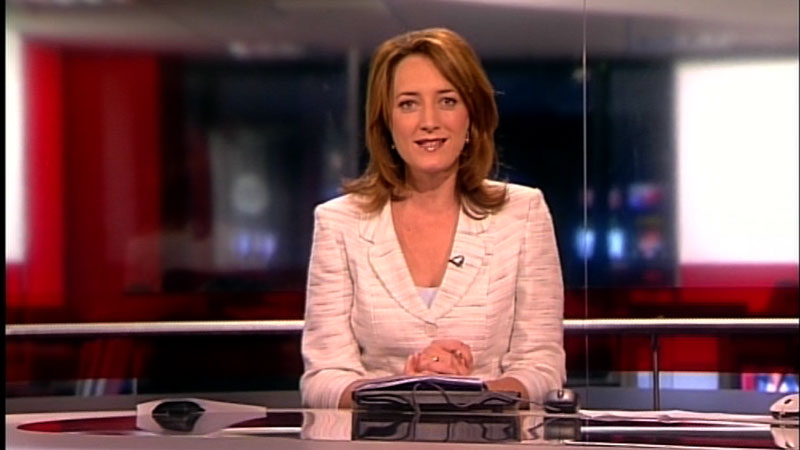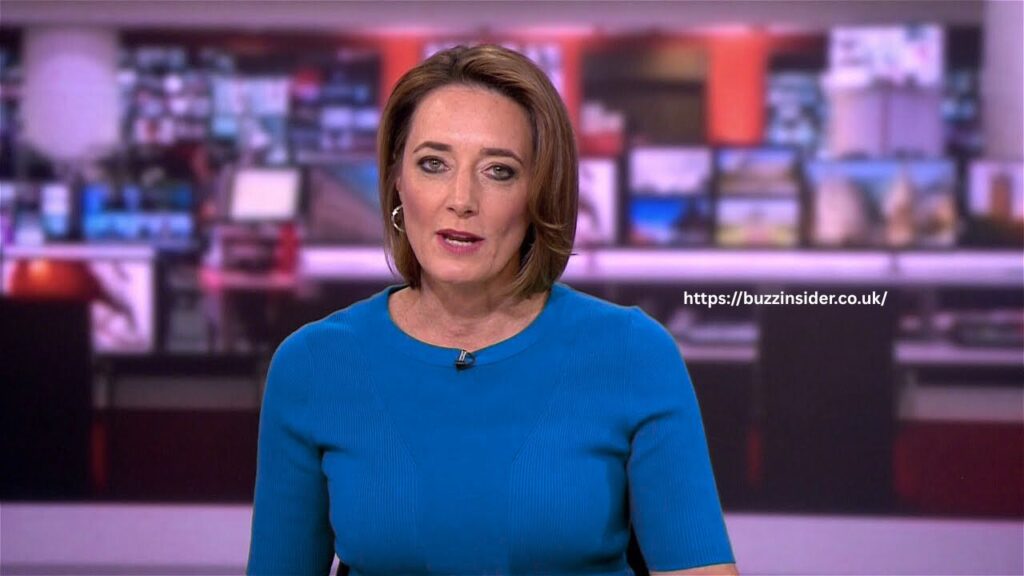If you’ve ever flicked on the BBC and felt instantly steadier in a breaking story, there’s a good chance Lucy Hockings was on your screen. She’s the kind of presenter who doesn’t just read the news she steers you through it. Calm when it’s chaotic, direct without being cold, and always respectful of the people at the heart of the story. Over two-plus decades at the BBC, the New Zealand born journalist has become one of the most recognizable voices in international news, anchoring major moments and daily coverage with the same poise.
From Taranaki to the BBC desk
Lucy Hockings grew up in Taranaki, New Zealand. She studied journalism at the University of Auckland, then cut her teeth as a reporter with TVNZ chasing stories, working live shots, doing the gritty, unglamorous work that shapes real reporters. The BBC came calling in 1999; she joined as a producer, moved up quickly, and soon enough was on air. That blend of field reporting and producing shows in her style: storytelling first, headlines second.
In those early BBC years, she wasn’t parked behind a desk. She reported through events that rewired the world: the September 11 attacks, the wars in Afghanistan and Iraq, the 2004 Indian Ocean tsunami, the death of Pope John Paul II, and the 2005 London bombings. You can hear that history in how she interviews patient, persistent, and precise, especially in fast-moving disasters where misinformation can spread faster than facts.
The on-air presence clear, calm, and human
A lot of people can deliver lines from a teleprompter. Lucy Hockings’s gift is the way she carries the viewer through uncertainty. When a story breaks, she keeps context in the foreground: who’s affected, what’s confirmed, what still isn’t. There’s no sugarcoating and no drama for drama’s sake. That’s part training and part lived experience years of covering painful global moments taught her how to hold a line between empathy and accuracy. It’s also why she’s trusted to front the BBC’s fast-turnaround news blocks where details change minute by minute.
You’ll also sometimes hear her Kiwi accent peeking through. Early on, she’s said there was pressure to smooth it out but the voice you hear today is unmistakably hers. That authenticity is part of the bond she has with audiences around the world.
Headline shows and a changing BBC
If you watch BBC News during the day, you’ve almost certainly run into one of Lucy’s programs. She’s anchored flagships like GMT and Impact, then fronted Live with Lucy Hockings, a branded block focused on global developments. In 2023, when the BBC merged its UK and international news channels, she became one of the chief presenters of the new schedule, fronting BBC News Now a program built for pace: short segments, sharp updates, live crosses, and quick pivots as stories develop.
BBC News Now launched on May 22, 2023, and Lucy has been central to the format: fast, global, and deliberately wide-ranging so viewers in North America, Europe, Africa, Asia, and Oceania can all find what they need across the day. That kind of program only works with a presenter who can shift gears in seconds. She does it without losing the thread.
Not just a presenter an interviewer and moderator
On big news days, the anchor chair is only part of the job. Lucy Hockings interviews whether with politicians, scientists, CEOs, or eyewitnesses tend to be tight, prepared, and grounded. Off air, she’s also an in-demand moderator for international events and panels, the kind where you need a quick study who can hold a complicated conversation in front of a tough audience. Those gigs aren’t about celebrity; they’re about trust. People book her because she can cut through fluff without turning combative.
The craft you don’t see
Here’s what most viewers never catch: great live news is a team sport. Producers are in her ear, editors are turning clips, correspondents are queued on patchy lines, and graphics are racing to keep up. The presenter’s job is to make that orchestra sound like one instrument. Lucy is exceptionally good at that. Years ago she was a producer herself, and you can feel it in the way she sets up a correspondent for success short question, clean cue, space to report, then a crisp follow-up. That’s how you keep a live program coherent when the facts are still forming.
A steady hand on hard days
If you think back to the toughest news cycles of the last two decades terror attacks, natural disasters, sudden political shocks Lucy Hockings has often been there, holding the broadcast steady as verified details arrive. It sounds simple: say what’s known, admit what isn’t, and keep going. In practice, it’s anything but simple. Her track record covering events like the 2004 tsunami, the 2005 London bombings, and the capture of Saddam Hussein tells you she knows how to manage that balance when the stakes are high.
A pop-culture footnote because why not
Fun bit of trivia: Lucy appears as herself in the opening of Marvel’s Black Panther (2018), playing a news anchor. It’s a tiny slice of screen time, but a neat marker of how recognizable her presence is outside hardcore news audiences
What makes her different
Plenty of anchors can do “authoritative.” Lucy Hockings adds warmth. She respects the viewer’s time and intelligence no baiting, no overpromising, no faux “aha” moments. And she’s comfortable letting silence breathe when a guest says something that deserves a second to land. That restraint is rare. It’s also why, on messy breaking stories, people trust her. The signal gets through the noise.
Why audiences stick with her
- Clarity when it’s chaotic. In rolling coverage, Lucy Hockings prioritizes confirmed facts, context, and plain English over speculation.
- Global range. She’s built for a channel that serves the UK and the world at once switching effortlessly from Westminster politics to a cyclone in the Pacific.
- Interviewing without theater. She challenges guests, but doesn’t turn interviews into point-scoring contests.
- Experience you can feel. From 9/11 to the London bombings and beyond, she’s been in the chair for the biggest stories of our lifetime.

Career snapshot for quick reference
- Born: March 7, 1974, Taranaki, New Zealand.
- Education: Journalism degree, University of Auckland.
- Early career: Reporter at TVNZ in New Zealand.
- BBC start: 1999 as producer; later senior producer, reporter, and presenter.
- Notable coverage: 9/11, Afghanistan and Iraq wars, 2004 tsunami, death of Pope John Paul II, 2005 London bombings, capture of Saddam Hussein.
- Programs: GMT, Impact, Live with Lucy Hockings, and since 2023 BBC News Now on the merged BBC News channel
A note on voice and identity
There’s something quietly powerful about the fact she kept her Kiwi sound. Early in her career, she even went to elocution lessons an industry reflex to sand down accents. It didn’t stick. Today, that voice is a signature. In a media world that still too often narrows accents into one “acceptable” register, Lucy’s presence on one of the world’s biggest news platforms is a nudge toward a broader idea of who gets to tell the news.
Final word
News doesn’t need stars. It needs grown-ups. Lucy Hockings brings that grown-up energy every day steady, compassionate, and relentlessly clear. Whether she’s guiding a viewer through a sudden coup, a hurricane landfall, or a tangle of breaking headlines, she does it with grace and discipline. That’s why audiences around the world keep finding their way back to her.



